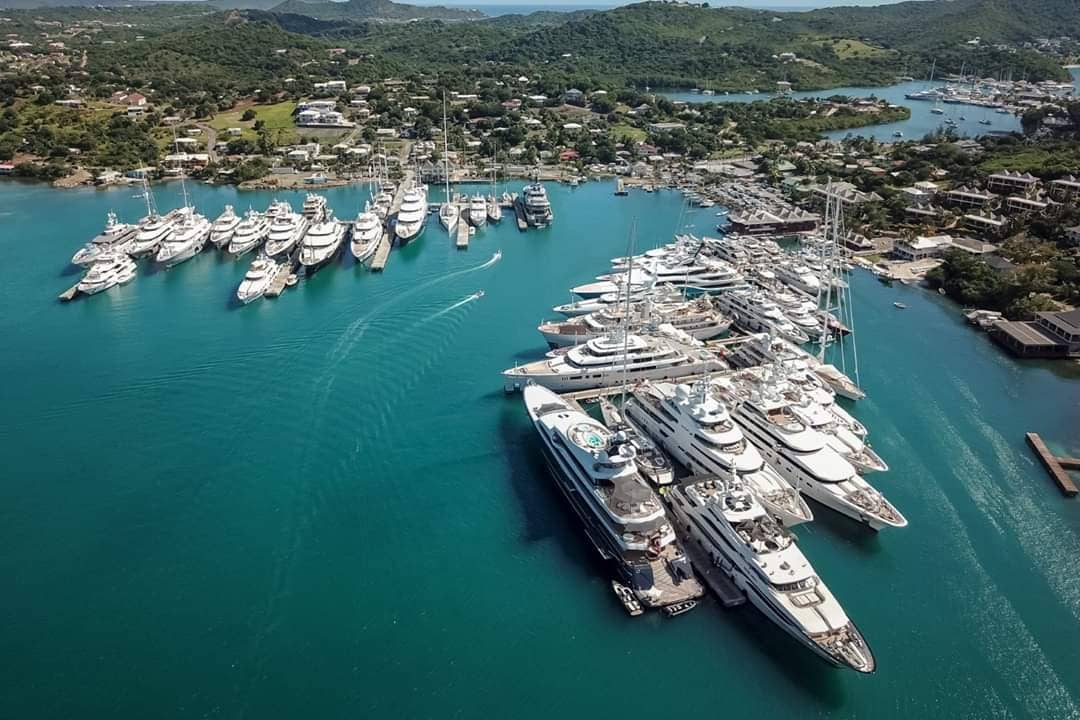
The Economic Commission for Latin America and the Caribbean (ECLAC) Wednesday said economic growth across the Caribbean region is expected to increase slightly to 2.1 per cent this year.
ECLAC launched its “Economic Survey of the Caribbean 2019,” and according to the Trinidad-based ECLAC deputy director, Dillon Alleyne, economic growth strengthened across the Latin America and Caribbean region in 2018.
He said weighted average real growth in the region rose to two per cent last year relative to -0.1 per cent in 2017 and that amongst the fastest growing economies were Anguilla (10.9 per cent), followed by Antigua and Barbuda (7.4 per cent), Monserrat (5.2 per cent) and Grenada (4.1 per cent).
 “This growth trend is expected to continue in 2019, as economic growth across the region is expected to increase slightly to 2.1 per cent,” he said, noting that in particular, average growth rate of the Organisation of Eastern Caribbean States (OECS) economies is expected to strengthen to 4.2 per cent in 2019, which is above the global growth rate of 2.6 per cent as well as the regional growth rate.
“This growth trend is expected to continue in 2019, as economic growth across the region is expected to increase slightly to 2.1 per cent,” he said, noting that in particular, average growth rate of the Organisation of Eastern Caribbean States (OECS) economies is expected to strengthen to 4.2 per cent in 2019, which is above the global growth rate of 2.6 per cent as well as the regional growth rate.
ECLAC noted that the goods producing economies are expected to post a growth rate of two per cent in 2019, down from 2.2 per cent last year, while the service producing economies are expected to grow by 2.2 per cent up from 1.8 per cent in 2018.
It said that the slightly weaker performance of the goods producing economies can be linked to subdued global commodity prices.
“On the other hand, improvement in construction and tourism is expected to contribute to the better economic performance of the service producing economies. All of the 15 Caribbean economies assessed in the Economic Survey are expected to post positive growth in 2019 for the first time since 2007.
“More specifically, Dominica (9.9 per cent), Antigua and Barbuda (5.9 per cent), Grenada (3.3 per cent) and St. Kitts and Nevis (3.1 per cent) are expected to be the outstanding contributors to this positive forecast.”
Alleyne said driving this outturn is an anticipated strong performance in tourism related activities, the construction sector, as well as robust results in the Citizenship by Investment (CBI) programmes following the reduction in the minimum investment requirements for the CBI programmes by some OECS economies with Dominica having one of the lowest CBI investment requirements.
He said in the case of Guyana, economic activity is also expected to accelerate (4.6 per cent) ahead of the first commercial oil production in early 2020.
“However, the region’s growth rate is expected to remain sluggish, due to restrained investments and impacts of fiscal austerity measures. Downside risks include an active hurricane season, continued uncertainty around commodity prices, the region’s vulnerability to de-risking, US-China trade war, Brexit and the slowdown of the global economy.”
The ECLAC senior official said Trinidad and Tobago returned to positive growth, registering 1.9 per cent in 2018 for the first time in three years, largely driven by a recovery in the energy sector.
“In 2019, despite the effect of the oil refinery closure of the state-owned company PETROTRIN in November 2018, growth is projected to be 1.6 per cent, supported by a new natural gas project and an increased implementation of public sector investment programmes.”
Alleyne said the recovery in the energy sector has contributed to the improved foreign exchange inflows, but the foreign exchange shortage is still acute.
He said that the announcement of unsuccessful infill drilling by BP could also have negative impact on economic growth, but the government is working to mitigate it.
“The recent downgrade by Standard & Poor’s of Trinidad and Tobago’s credit rating was driven by lower than expected energy production and economic growth as well as the delay in institutional reforms, but the credit rating remained in “Investment Grade” with “stable” outlook.”
Alleyne said that the Caribbean region has continued its fiscal consolidation effort.
Last year, fiscal deficits, as a per cent of gross domestic product (GDP) decreased in 11 out of 15 Caribbean economies despite the increased needs for fiscal resources after hurricanes Irma and Maria in 2017 and, as a result, 12 Caribbean economies experienced a decline in their public debt to GDP ratio. He said despite the progress, however, only two Caribbean economies’ public debt ratios fell below 60 per cent of GDP, the benchmark for sustainable debt.
“Given the Caribbean’s vulnerability to external shocks, continued commitments to fiscal consolidation is required to achieve sustainable growth. Across the Caribbean, de-risking continues to negatively impact the real economy, as purchasing of foreign goods and services have become more difficult.
“Although some strides have been made in stabilizing the impact of de-risking, it remains a risk across the region.”
ECLAC, in a recent study, identified a number of recommendations to address the impact of de-risking, including launching a transparency and media campaign; consolidating banks and banking systems; and strengthening AML-CFT regimes.
It said CARICOM has responded to the recently updated EU blacklist with sharp disapproval as seven of 15 countries on the EU blacklist are in the Caribbean.
“Blacklisting can mean a risk to reputation, stricter controls on EU financial transactions, and reduced EU development funding. Stronger coordination is needed among CARICOM countries and governments must assess and address deficiencies to ensure compliance,” Alleyne said.
He said strengthening of investment is a key condition for inclusive and sustainable economic growth. Upgrade of key sectors like tourism and exports expansion in non-traditional sectors such as education and health care should be pursued through improving infrastructure and training as well as trade facilitation.
“This effort must include building technical capacity for prioritizing and managing the capital investment programmes. It is also necessary to lock in the gains of fiscal consolidation through institutional reforms such as strengthening social security programmes as well as reducing crime and citizen insecurity,” the ECLAC deputy director added.
Advertise with the mоѕt vіѕіtеd nеwѕ ѕіtе іn Antigua!
We offer fully customizable and flexible digital marketing packages.
Contact us at [email protected]

















The country is getting fatter but the people are getting slim..
Mel, What are you really trying to say? You are too mystical. Come on, Mel, just break it down for us common folks. Thank you.
The country economy is the fastest going backward. The higher education you have it is a struggle getting a job as a national in this so call fastest growing economy.
“Oh what a tangled web we weave when first we practice to deceive.” Unlike ECLAC that takes concocted information from an inept administration and run with it, the IMF visit Antigua&Barbuda every year sit with our technicians and produce a document call the article IV report on Antigua&Barbuda, for the pass three years this faking administration has not given the IMF permission to release this report. I am calling on the Top Dawg to stop blaming Weston for the three year delay. You can fool all the people some of the time and some of the people all the time, but you cannot fool all the people all the time.
Yet the IMF’s website in the end (when final data is summed ) reflects the same GDP numbers that ECLAC shows. Find you guys strange in your attack now against many of the same techs whose figures you had no issue with during the former admin tenure. Instead of celebrating the fact that we have a consistent batsman (averaging 5% yearly), you prefer to show bitterness. Behind us are the times when the figures were mostly negative and erratic. After only negative, one year it was 3% (2012), then the next year 1%(2013).
I wish I could have marked my own CXC examination papers and give myself an A+ grade like this government is doing with this ECLAC report.
Sending ECLAC fudged figures and over estimated growth projections will not fix our roads, water, electricity problems and high unemployment not to mention our filthy city.
ECLAC Report is a waste.Not worth the toilet paper it is written on.Need I say more?
Comments are closed.